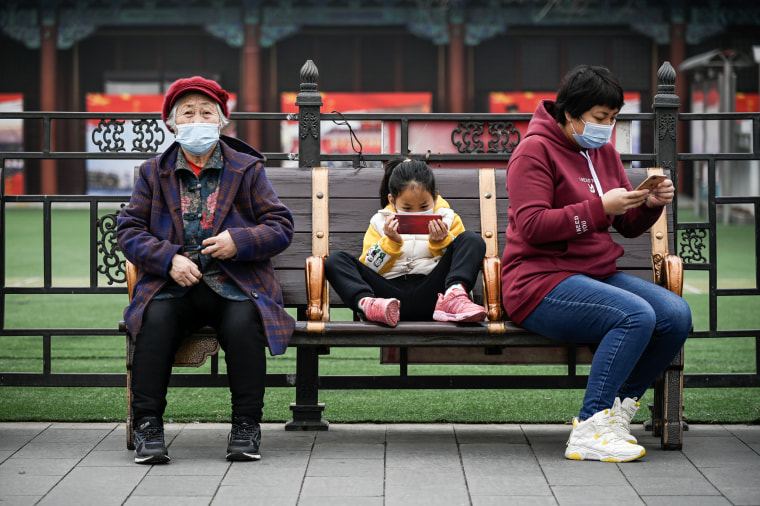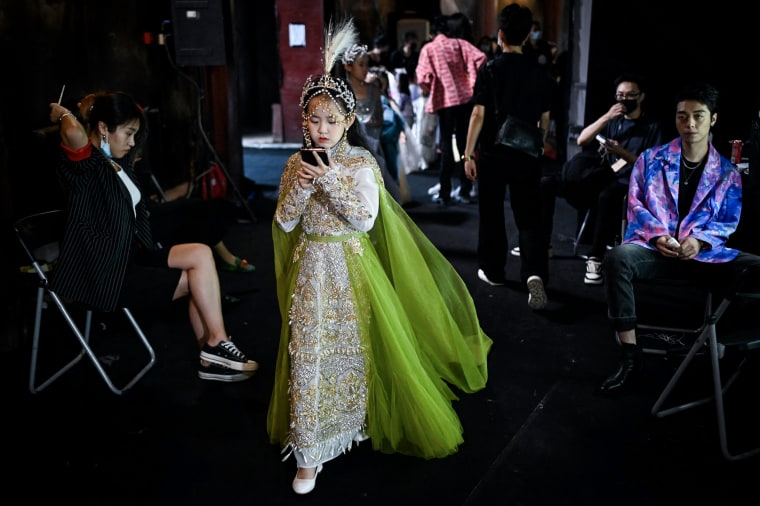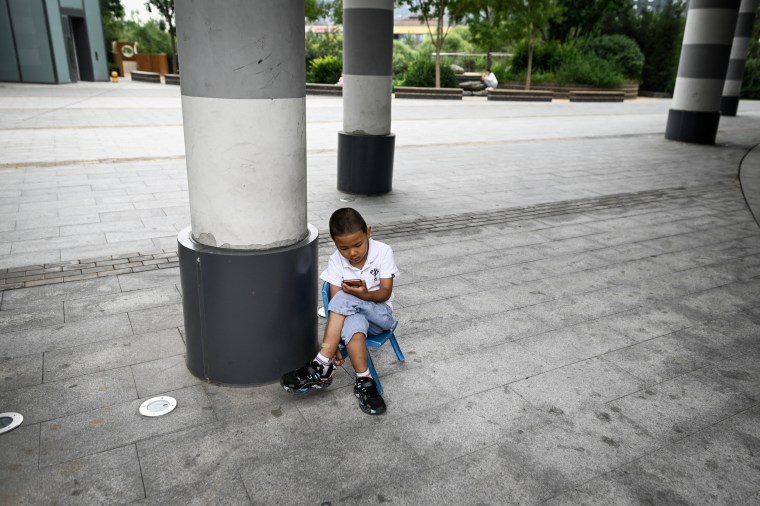It’s a familiar sight around the world: a teenager glued to their cellphone as their parents implore them to put it down.
But youngsters in China may have the choice taken away from them under new rules that would limit screen time to a maximum of two hours a day for people under the age of 18.

Proposed Wednesday by the country’s powerful internet regulator, the Cyberspace Administration of China (CAC), if drafted into law, smartphone-makers, apps and app stores would be required to offer a “minor mode” that restricts usage. This would allow parents to manage what their kids see and internet service providers to show content based on a user’s age.
The rules, which it said were designed to “prevent and intervene teenagers from getting addicted to the internet,” would limit screen time on mobile devices to 40 minutes a day for kids under 8, one hour for those ages 8 to 16 and two hours for those above that age.
It would also manage the type of content they are allowed to view, with songs and audio-focused content for children under the age of 3, while those between 12 and 16 would be allowed to watch news and educational content.
The proposals were welcomed by Gu Zhenzhen, who told NBC News by phone Thursday that her 10-year-old son would start to play games when he opens his eyes in the morning till he goes to the bed, if she let him.
Gu, a nurse from the eastern province of Zhejiang, said there were times when she could encourage her son to study “because he can have more time to play on the phone.”
Alina Wang, a mother of three from the southern city of Guangzhou, echoed her thoughts.
“I really support it,” said Wang, 32, adding that she imposed strict time restrictions on her children’s smartphone use and she worried about the impact of the internet on her offspring.
While accepting that her children would “definitely be exposed” to the internet, she said it was also up to parents to guide their children.
While the proposed legislation would allow for some exceptions like regulated education products or emergency services applications, a parent would have to verify attempts to take a device out of minor mode.
Although the rules have not yet been passed and are open to public consultation, they are part of a broader push by the CAC to limit the use of apps and smartphones. In 2021, the regulator banned teenagers from playing mobile games on weekdays.

Minors on the microblogging site Weibo have also been barred from reading about trending topics if parents turn on an adolescent mode.
Some questioned whether the new proposals would be effective if they were drafted into law.
Calling the rules “crazy,” Dorothy Shi, an English teacher from Zhejiang, said the proposed time was too short.
“They are only several years younger than me and we see things in similar ways,” Shi said.
Others questioned the plans on Weibo. “It is the parents’ responsibility to protect teenagers,” one user wrote.
Some, such as Wang, also questioned whether the rules would be enforceable because a lot of children use their parents’ phones and accounts.
“How can they be restricted? How does it recognize this is an underage or someone else?” she said.
Cao Fan, an associate professor of educational and cognitive psychology at the University of Hong Kong, agreed that it was important for parents to “take the lead” rather than relying solely on the regulation.
“Children will definitely be affected if their parents hold a cellphone or watch videos all day long,” she said. “This is not just a problem for children only.”
